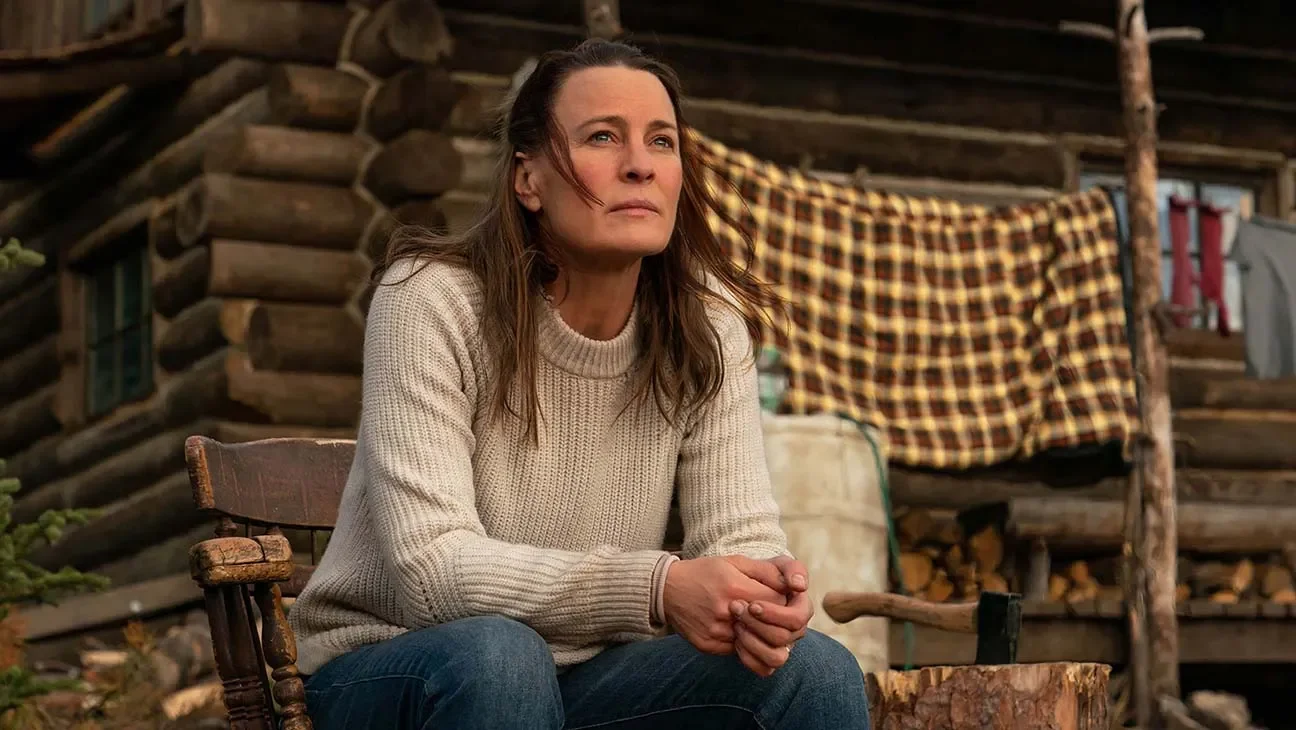
Grief and Heartache make for strange bedfellows
In the Land
by Kathia Woods
Grief and Heartache make for strange bedfellows; such is the case for Land. Land stars Robin Wright as Edie, a woman looking to escape any connection to her former life. Her goal is to live off the grid. She picked Wyoming as the place to kill her demons. Edie isn't quite prepared for this laborious choice.
Land is Wright's feature directorial debut. It's a challenge that falls short at times, but one must admire her effort. Edie, the main character, doesn't draw us in soon enough, making it difficult for the viewer to embark on this journey with her.
Jesse Chatham and Erin Dignam's screenplay doesn't give Wright much to sink her teeth in. A good portion of the film is Edie attempting to conquer the Wilderness; instead of giving Wright some more conflict, we have quiet moments in a movie that is filled with them. We know she has demons, but what is she willing to do to overcome them other than hide.
These were the things missing from this screenplay, such as emotional growth.
The film's opening gives us a small glimpse into Edie's prior life. We see her struggles in therapy. She's unable to articulate her emotions. We also know that she has a sister. A sister that is fighting to help her while she gives into despair. Edie concludes people are adding to her grief; hence she relocates to Wyoming.
She finds refuge in a rustic cabin. The cabin is situated around gaming and water. The essentials she will need to survive on her own. The cabin also doesn't have indoor plumbing or electricity. Although she's by herself, the past haunts her via memories of the life she's lost.
In her rush to be isolated, she didn't configure her surroundings' harshness. Edie isn't exactly survivor material, and soon she discovers that her need to be alone without assistance nor preparation may hinder her surviving the winter.
The film does a good job showing the viewer that Edie is in over her head. There's nothing glamourous about her escape. The outhouse poses a daily challenge; however, we still fail to connect with Edie amongst all this turmoil.
The upside of this film is the scenery. The film was shot in Canada, and one gets a real sense that Edie, while not far from civilization, will have to earn her way through each season. The terrain, while beautiful, is unforgiving. Amazon will not be delivering anything out that way. Soon a familiar feeling of loss and emptiness returns. She has flashbacks and finds herself screaming to an audience of one. We, the onlookers, know this experiment is about to go wrong.
There's a challenge here for Wright. She's self-directing in scenes where she's the only actor. She has to assume that every decision made will help us, the audience, understand Edie's conflict. The frustrating part is Edie's stubbornness. This alone thing isn't working to the point where she places her life in danger.
Luckily Demián Bichir (Miguel) notices the cabin he passed a few days ago smoke has extinguished. He takes it upon himself to intervene. This intervention was desperately needed not just for the film but also for Edie's sake.
Although the film requires the characters to interact, Miguel's appearance doesn't seem natural. It's an easy out. This man we discover has his baggage, yet he's willing to help this stranger.
The foundation of friendship should have been their parallel grief. The filmmakers missed an opportunity for growth. Edie would have understood that what she's experiencing is not solitary; instead, progress is halted again.
Miguel teaches her to survive in her new rustic home. She, in turn, offers him nothing. Land had an opportunity to have an essential discussion on grief but instead, we don't connect with Edie throughout this film. Every time we try, a new variable distracts us. The landscape isn't enough to make the viewer root for her; that is the most significant loss of this film. The actress nor the director made space for the audience to empathize, creating this divide between us.

